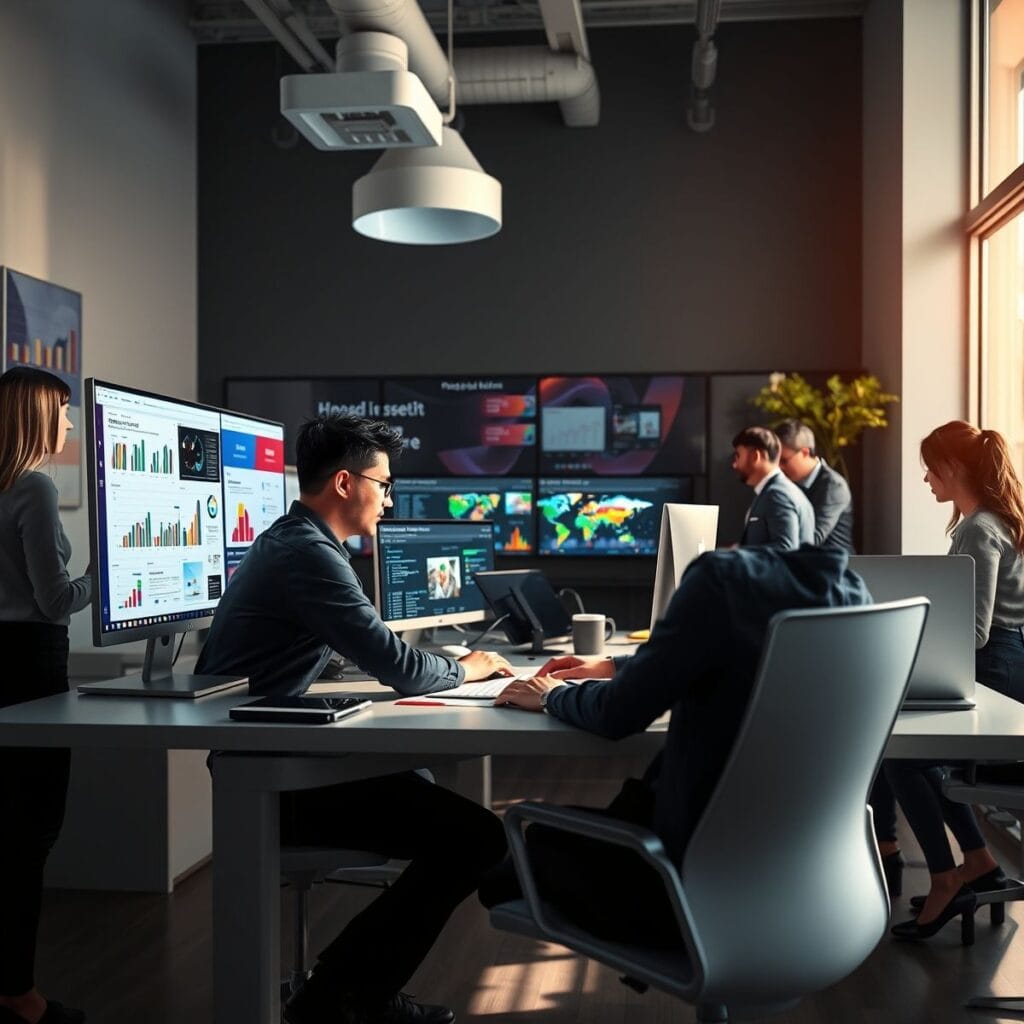Types of Websites
In the world of web graphic design, the types of websites vary according to the needs of different areas and companies. Institutional websites, for example, are used by companies to present their brand, mission and values, functioning as a digital showcase. Commercial websites, on the other hand, focus on selling products or services and may include e-commerce features to facilitate online transactions. In addition, there are blogs, which are content platforms where it is possible to publish articles and news, and portfolios, which are especially aimed at creative professionals to showcase their work.
E-commerce Websites
E-commerce websites are one of the most important aspects of web graphic design, as they allow companies of all sizes to sell products directly online. These websites must have an intuitive and responsive design, ensuring a positive user experience. The design must include elements such as product catalogs, shopping carts and secure payment methods, as well as SEO optimization, aiming to rank well in related searches.
Landing Pages
Landing pages, or capture pages, are another important type of website in web graphic design. They are designed for specific conversions, such as lead generation or product promotions. A clear layout and a compelling call to action are essential to maximizing the effectiveness of these pages. With attractive graphic design, you can increase conversion rates, making them valuable tools for digital marketing campaigns.
Corporate Websites
Corporate websites are used by large companies and organizations to establish a solid online presence. Web graphic design in this context must convey credibility and professionalism, with simple navigation and relevant content. In addition, the integration of elements such as newsletters and contact forms can facilitate communication with customers and partners, optimizing business relationships.
Blogs and Content Sites
Blogs have become an essential part of web design, allowing businesses to share valuable information with their target audience. A reader-friendly design with appropriate typography and relevant images is essential to maintaining visitor interest. Additionally, organizing content by categories and tags helps with navigation, making it easier for users to find what they’re looking for.
Portfolio Websites
Portfolio websites are especially important for freelance and creative professionals, such as designers, photographers, and artists. Web design should be visually striking, reflecting the creator’s personal style and showcasing their work in a clear and appealing way. The layout of your work, along with descriptions and contact information, can help you land new clients and job opportunities.
Service Automation
Customer service automation, especially through platforms like WhatsApp, is a growing trend that can be integrated into web graphic design. Chatbot tools and automatic responses are essential to providing fast and efficient support to customers. A good design should include quick access buttons and a user-friendly interface, making it easy for the user to interact with the company.
Artificial Intelligence and Web Design
Artificial intelligence (AI) is revolutionizing web design, enabling real-time customization and optimization. AI tools can analyze user behavior and adapt website content to their preferences. Additionally, automating design processes such as layout generation and color selection can speed up website creation while maintaining aesthetic and functional quality.
Conclusion on the Importance of Graphic Design for the Web
Web graphic design is an essential discipline for creating websites that meet the needs of different market segments. From the layout of an e-commerce site to the automation of customer service, each element must be carefully planned to ensure the best user experience, reflecting the brand's identity and facilitating the conversion of visitors into customers.
